MA Eco-Social Design: Project 3 by Giulia Fasoli | WS 2020
Il tempo viene per chi sa aspettare
Unveiling the Valuable Knowledge Hidden within Generations and Optimizing its transmission for the Wellbeing of the contemporary Society
text
Starting from the industrial revolution forward, the speed of everyday life in modern societies always kept accelerating. In this way, the hierarchical structure of society has undergone a deep and seemingly irreversible transformation.
Today’s society is constantly for toward efficiency.
Youthful productivism is a value. The elders instead, started to be seen more and more as a societal burden rather than a resource, especially when not anymore autonomous. This mentality-change phenomenon, common all over Europe, started to slowly permeate even in the Italian culture; that same culture that for centuries has seen in the elderly the most respected social figures.
Why is this perception-change happening? There are many theories, but nobody knows for sure. And fewer seem to care.
In my journey, I focus on discovering the perception that generations have of one another and on unveiling the valuable knowledge that they hide from one another.
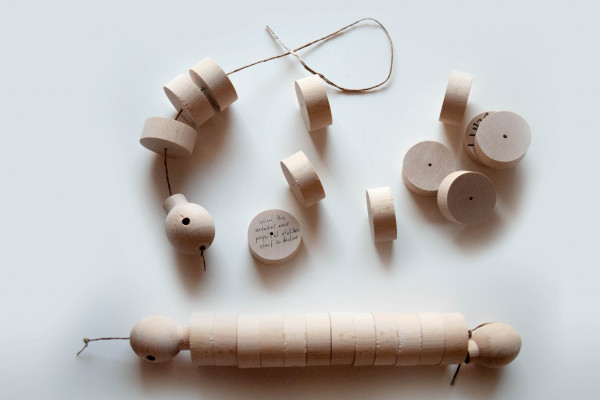
Age perception and Stereotypes on Elders
Social perception is a topic that has been well-covered by academic researchers under countless perspectives.
Nevertheless, ageism remains one of the more accepted stereotypes by today’s society and too often it remains socially ignored (an example of emphasis on age, can be represented by the birthday cards always remembering us that an we are one more year older).
My first research activity, tried to answer two questions: “at what age, a person is “old?” and “which characteristics are typical of an “elder”?
My test subjects had to write the answers to those questions on the two sides of a wooden piece.
The picture of “elder” that came out, was extremely distorted.
Indeed, one person every three associated elders with “sickness” or “slowness”; and the average age of an old person resulted to be 57yo (an age where few people define themselves as “old”).
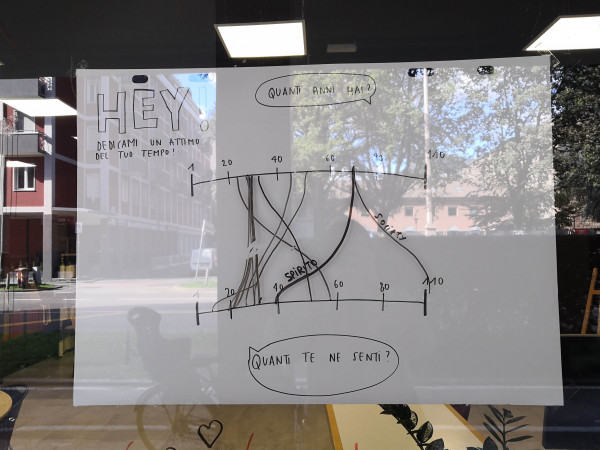
In the second activity, I investigated the “subjectivity” of age: how old people feel, compared to how old they actually are.
The discovery I made (as you can see from the pilot picture) is that generally the more people get old, the less they feel represented by their age (most elders still feel in their 20’s-40’s).
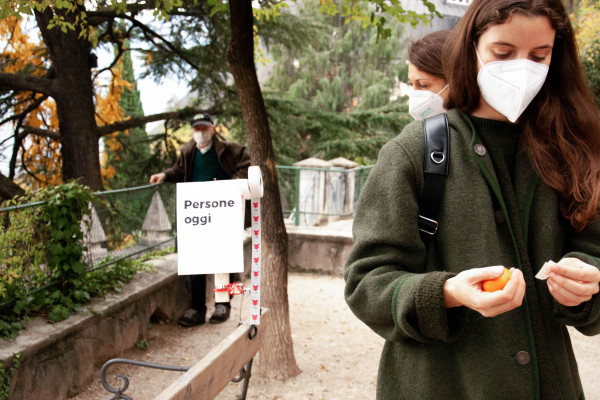
After the first two activities, I started wondering if age stereotypes may be the reason that prevents the contact between generations and the sharing of knowledge amongst them?
To find out, I decided to stop more people and to ask them.
I made them pick a number (like in a supermarket!) and I asked them to share with me a memory of a passed age (if the number was lower that their age) or an idea of how an older people would live and feel (if the number was higher).
These are two quotes of answers I got:
“Old age is subjective; it all depends on how a person decide to interface himself with the world”.
“I am old but extremely happy. I am enjoying my nephews every day. I am more scared about the future that is awaiting you, than of the one awaiting me”
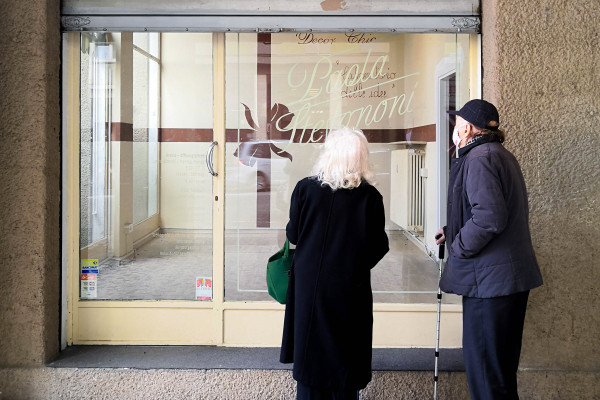
Framing my project: The value of Heritage in its forms and Knowledge
After all the previous activities, I discovered that the intergenerational exchange of knowledge did not disappear from our society, it just changed its area of influence.
If before, elders’ knowledge was respected and sought at a societal level too, today it is almost exclusively shared in a familiar context.
In the past the elders’ practical skills (ex. craftmanship skills, practical career experiences etc.) and intangible knowledge (customs, traditions, etc.) were employed for bettering the society. Today instead, they seem to be relegated in the family context and only rarely spill outside of that realm.
The revolution of the Internet shifted the channels of communication between people and it seems to have moved centuries-old traditions of intergenerational exchange into obsolescence.
But what if a new approach to knowledge transmission could change this trend? What if a new understanding of the medium could instead enhance the transmission of knowledge between generations and help us to create a database of future heritage?
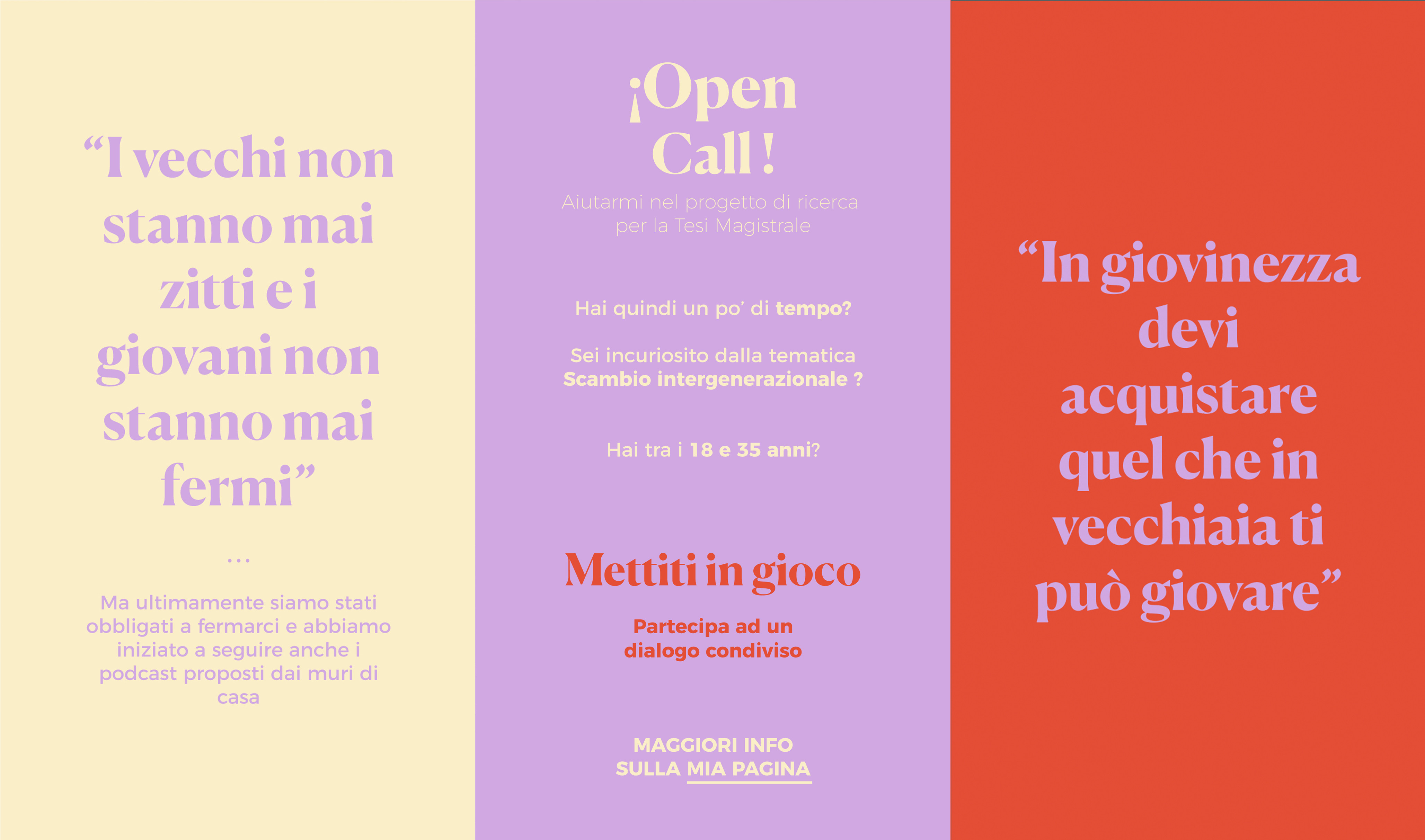
The point of today
To answer those questions, I recently launched an online survey and a series of webcam-based focus-groups with groups of young people (18-35yo). I am gathering perceptions, memories, stories and impressions that young people have on intergenerational exchange.
The next step will be to do the same with groups of elders and lastly, to unite the groups to created shared knowledge. If you’re curious like me to find an answer to all the questions I posed in this article, stay tuned and keep in touch with me.
text
Students:
Giulia Fasoli
Teaching Team:
Daniele Lupo (Project leader)
Amy Franceschini (Project leader)
Alastair Faud-Luke (Design Research)
Links
Survey results